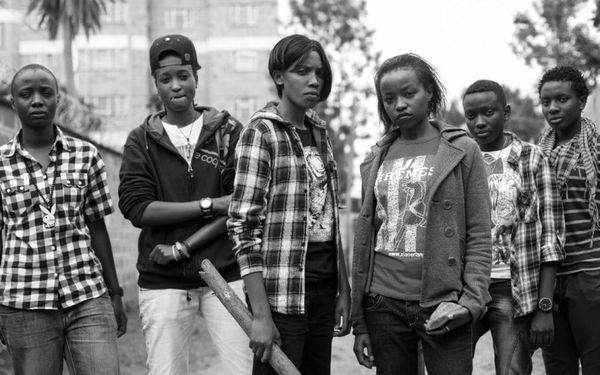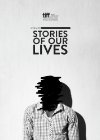Eye For Film >> Movies >> Stories Of Our Lives (2014) Film Review
Stories Of Our Lives
Reviewed by: Jennie Kermode

When people are forbidden from having a public voice in their own nations, two new kinds of risk emerge for them. Firstly, they risk being reduced by outsiders to objects of pity, good intentions erasing their humanity and individuality, the strength it takes to survive in adversity elided. Secondly, they risk losing touch with their own history, their stories lost - a process which destroys confidence and undermines the potential for resistance. Kenya is currently in a situation not unlike that of the UK in the Eighties. Being LGBT is legal, but there's a constant fear that the law may change; socially, it's barely tolerated. 'Promoting homosexuality' is strictly forbidden. Nevertheless, the situation is better than in some neighbouring countries, and the courts have shown some sympathy to organisations campaigning for LGBT rights. One of those organisations financed this film, enabling Kenyan LGBT people to tell their own stories.
There are five stories here, all dramatised and performed by actors - one member of the art collective that made the film has since been arrested for it, so it would be difficult for the individuals concerned to speak directly. That said, the approach is very effective in inviting viewers to identify rather than just listening. It's uneven, as one might expect, but there's no really weak element and the use of multiple stories emphasises the diversity of experiences.

The first story, Ask Me Nicely, traces the relationship between two schoolgirls faced with the kind of petty obstacles sadly still found in many supposedly liberal countries. It's a story of alienation, resilience, and the inevitable strain on intense teenage passions that emerges both from external pressures and from internal doubts. The second, Run, sees a young man drawn to a local gay club which he sees when out walking with a friend, but fear his friend's reaction. There's an intensity to it that recalls those zombie films where humans try to pass themselves off as undead: the impossibility of knowing who in that crowd is friend or foe; the constant dread of what might happen if one is sniffed out.
The third story, Athman, is the strongest, the touching story of Raymond, a young farmhand who has fallen in love with his straight friend. The care that his friend still feels for him highlights the complexity and manifold nature of love, and the whole serves as a sobering note - if Kenya were to become liberal overnight, LGBT life would still have it problems. Many viewers, regardless of their sexual orientation, will have experienced unrequited love; Ray's woes are simply human, only made more bleak by sympathy.
Duet, the fourth story, takes its hero out of Kenya and into a London hotel room where an escort comes to meet him; he has long fantasised about sleeping with a white man, and it's quite a thing to be in a space where everything is so easily possible, but the consequence is a kind of culture shock. It's only the escort's quick recognition of this that rescues the situation, leading to a more genuinely intimate encounter than might have been expected.
That story, with its expressions of joy and optimism, contrasts sharply with the last, Each Night I Dream, where we are plunged into the life of a lesbian woman who lives each day haunted by the fear that Kenya will pass that law, that people will come for her and for the girlfriend she has passed off as her sister. Her response is fiercely Kenyan; unwilling to be told she's un-African ("What are we, then?"), she delves into memory and ancient myth in search of solutions, imagining herself changed, able to stand before the authorities and open her fly and have everybody back down. It's a story with plenty to say about women's status as well as that of LGBT people, and it's followed by a short statement about the reasons the film was made.
Stylistically simple but quite remarkable when one considers that they were filmed with a single DSLR, these short films form a powerful whole. Though each has its own distinct qualities, what is perhaps most important about them is their ordinariness, creating a surreal sense of a world in which everything is normal as long as one can avoid suspicion. It's an approach that hints at the wider danger of corruption and abuse inherent in such circumstances, though most of the time the film avoids overt political messages. Its focus is on the cultural. This isn't an invitation to pity but a challenge to established views and an assertion of humanity.
Reviewed on: 19 Sep 2015
















